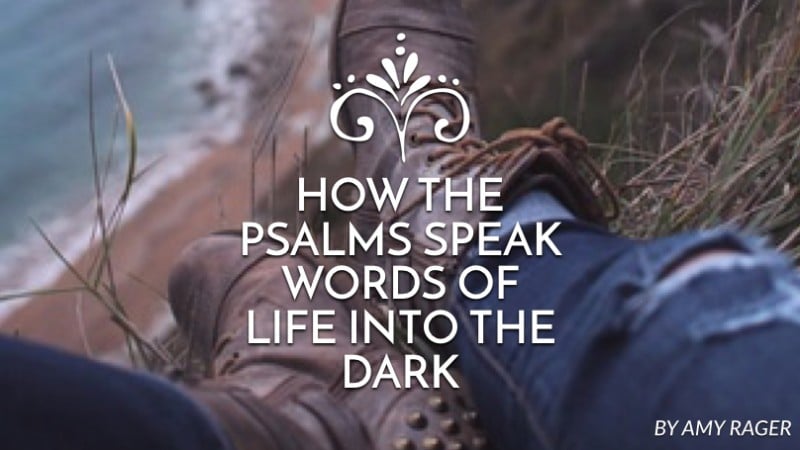Trouble brings out the best in some. I am not one of those people. Externally, I may function well and continue on—likely with a smile—but internally, I am shaken more than I care to admit by pain and hardship. I have often doubted God’s goodness, His intentions and His plans for me. There have been more days than I care to recount when I wondered if living for Amy would be a better option than living for God.
It was during one of these times that I turned to a Psalm written by David while he was experiencing his own day of trouble. I read the first line of Psalm 16, “Preserve me, O God…” and my soul echoed the refrain.
“Hold me together, Lord,” I prayed. “I can’t do it. I am double-minded and tossed about by the waves.”
But the camaraderie I felt with the Psalmist came to a screeching halt in the very next verse. “I have no good apart from you,” David cried. But my flesh was convinced I could find goodness with less pain elsewhere.
I read the rest of the Psalm in disbelief. My response to trouble felt as different from David’s as could be. How could he write such things as “in your presence there is fullness of joy” when life was difficult? I consulted biblical commentaries. They described our distressed poet-king’s tone as “settled joy” and commended his ability to speak right and true things to himself in the midst of strife.
David was preaching to himself. In the dark, he was declaring words of light. Could I do that? Could adopting David’s methods bring me back to a place of trust and “settled joy?” It was worth a try.
“God, you gave these words to David and they brought Him closer to you during His time of need,” I prayed. “Would you do the same for me?”
I meditated on Psalm 16. I memorized it. When I found myself idolizing a different path, I recited it. When I felt cynical towards God, I read it again.
Eventually, the Psalm began to feel like more than just a collection of words. Lines began to sneak into my own personal prayers. I started to believe the concepts. The lines had fallen for me in pleasant places! And I began to praise God using adaptations of David’s language. I spoke David’s words of light into the dark as an act of faith and God responded by dispelling the darkness little by little.
One day, as I read the Psalm again, I realized what a kinship I felt with a portion of scripture that once felt so foreign. The Spirit welled up in me, and I felt compelled to—like David—offer the words that God had given me, over the past few months, back to Him as an act of worship. So, I wrote out—line by line—the words I had used to make Psalm 16 into my own prayer:
O God, keep me from straying. You are the one who holds me together.
My Lord, I have pledged myself—my life—to you. I have declared you to be the source of all good.
Abandoning you for the things of the world would only increase my sorrows.
I will not search for relief outside of you or entertain thoughts of lesser joys.
I have chosen you, your sustenance. My resting place is in your hands.
I will trust that your plans for me are pleasant. Without a doubt, Beauty awaits me.
Thank you for my fellow believers, they are a gift to me and a source of joy.
How great you are for comforting me! For meeting me in the dark times to teach me!
Again, I vow to look to you always. Since you are my foundation, I will not be shaken.
And so- despite my situation- I am glad. I feel joy from head to toe. I stand secure in your love.
For my soul will never be abandoned; This body and mind will be redeemed.
God, I trust you to guide me down this path. Your presence will bring me true joy in this life and forever more.
Amen.
I went from speaking into the darkness to speaking to God. And then, God spoke in return. A passage that seemed science fiction became a tool and eventually, a creed.
That’s the beauty of God’s Word. It always revives the soul. It’s mysterious, powerful and strangely relevant to every last one of us.
This blog post is part of our series, Finding myself in the Psalms.
Published September 22, 2016



